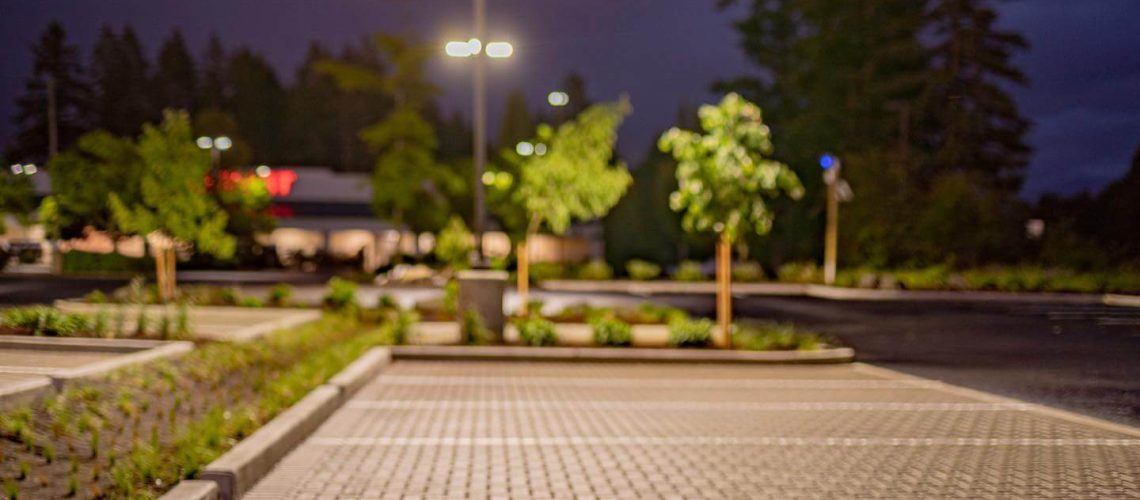In times of extreme weather – which seems to be more and more often these days – our built infrastructure needs all the help it can get. One contribution to this necessity is the increasing popularity of permeable pavers, which are intended to reduce water runoff into drains and sewers, and protect roads and footpaths from floodwaters as a result. So, to learn a little more about this option, we need to ask a few questions. What are permeable pavers? What are they made from? And how are they used?
What is a permeable paver system?
The first thing to know about a permeable paver is that the paving stone is not, in itself, usually permeable: in the main, pavers used in permeable pavements do not allow water to pass right through them. There are paving stones that allow this, but they are not commonly used in large-scale infrastructure. What is permeable is the layout of pavers: the way that they are laid leaves small gaps between the stones, thus allowing water to filter through them to the layers below.
What are they made from?
The pavers themselves are made from nothing more complicated than concrete or fired clay. The joints between the pavers are then filled with crushed aggregate material, which can be made from quartz, granite, and marble – and can usually be found in a range of colors, helping to make impressive designs. “Permeable” pavers surprisingly are generally thicker than ordinary paving stones, often checking in at close to an inch thicker. But as we’ve said, the key is the joint. With permeable paving, these joints can be up to a half-inch thick. It is these joints that allow the rainwater or snowmelt to percolate through.
It is generally agreed that the joint will be wider the more rain you get in an area, or the more snow falls and melts, the wider the joint will be. The wider the joint is, and the more permeable the material which fills it, the easier it will be for water to filter through to the sand and gravel underneath, and then through into the ground soil – thus protecting local storm drains and sewers.
Why are permeable pavers used with hardscape?
It has been accepted in areas of the mid-Atlantic states that hurricanes are increasingly a fact of life, and this makes it necessary to build storm-ready infrastructure. When assessing the damage caused by hurricanes in recent years, one unavoidable conclusion was that areas that used permeable pavements ended up with less damage being caused than those without.
When building any project in an urban municipality in many of the states of the USA, you will be expected to show how you will limit the amount of water that will run off the project, potentially causing drains to flood and spread dirty, polluted water. This in turn creates a public health hazard. Permeable pavers are the most cost-effective (and most effective generally) method of limiting water runoff and protecting the environment around you from the serious repercussions which can result.
At Sequoia Stonescape, we’re passionate about hardscaping and permeable pavers
With over 10 years of experience, our family-owned paver installation company would love to help. We also provide peace of mind with a 5-year warranty. Get in touch with us at (503)-932-7605. We’ve got an eye for practical solutions and can help you create beautiful outdoor esthetics utilizing permeable pavers for your front or backyard.

